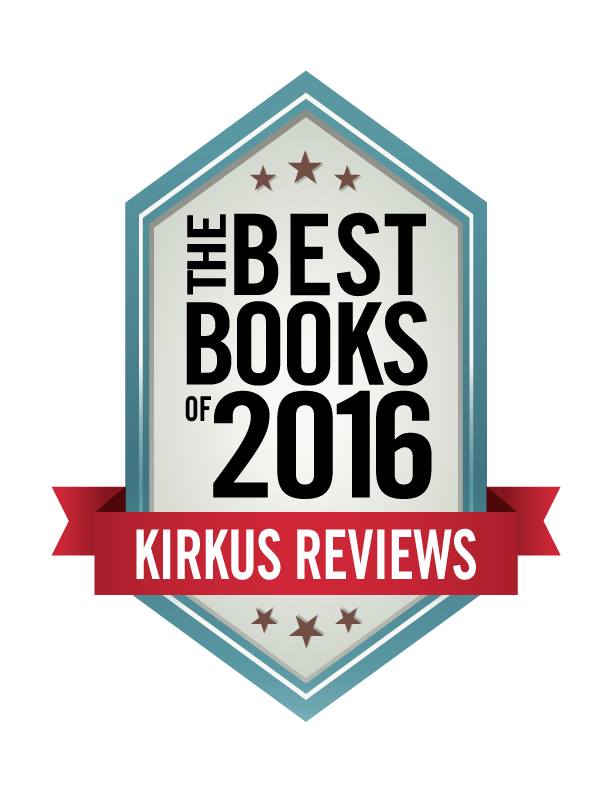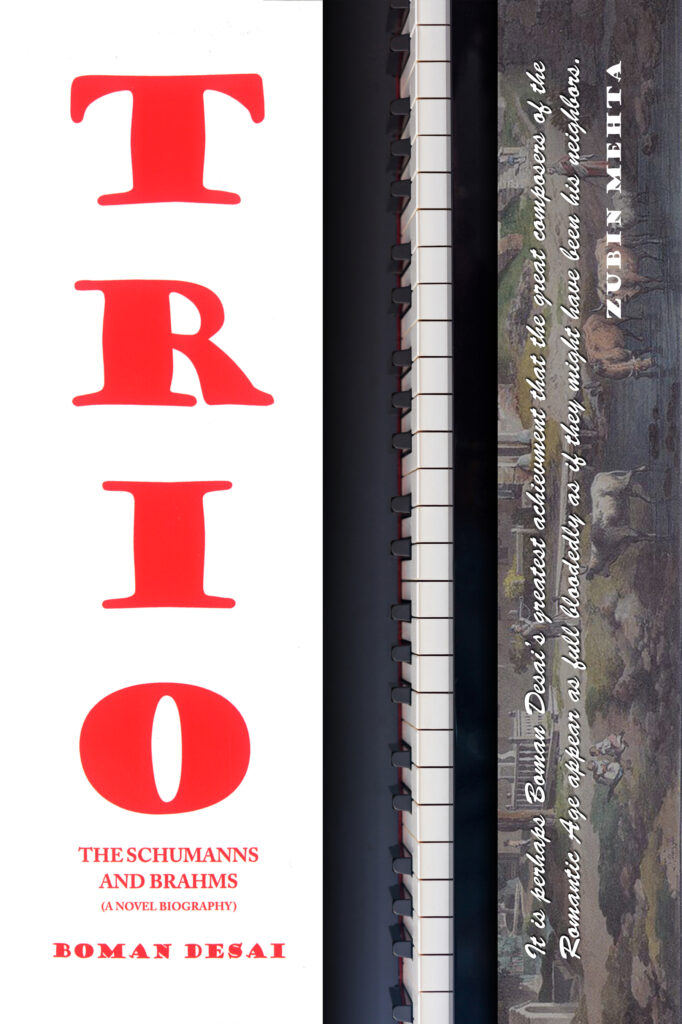TRIO
a Novel Biography of the Schumanns and Brahms by Boman Desai
Returning from an early morning visit to the post office along Chicago’s Inner Drive, I once saw a young woman rush from her highrise, hustle her child onto a schoolbus and herself onto a transit bus for her working day. She seemed dynamic, selfless, vital—and I, by contrast, sedentary and selfish, Quixotic at best. I was working on a book about the lives of the Schumanns and Brahms, but after 700 pages and no end in sight I felt I had lost control.
It started simply, but took me by surprise. I love Brahms’s music and picked up a biography during a weekend visit to Columbus, Ohio—but, merging with the straight line of my life back in Chicago, I shelved and forgot about the book. Five years later, coming across another book on Brahms, I remembered the first. I am a writer, and turning pages of the second I realized that if I bought the book it would be with the intention of writing a book on Brahms. I also realized that if I didn’t buy the book then, I would be back for it later. The gestation had begun without my knowledge, the decision to write the book as unconscious as the preparation was not.
I started by devouring book after book on Brahms until I realized the Schumanns were a large part of his story and they became subjects of my book no less than Brahms, leading me to book after book on the Schumanns. No less could I avoid appearances by Mendelssohn, Chopin, Liszt, and Wagner among many others when their lives intersected—and no less historic events such as the Dresden uprising, the rise of Bismarck, the Franco-Prussian War, and the emergence of Germany as a nation when they affected their lives. I wrote what I knew; what I didn’t know I researched; what was beyond research I imagined.
From gleam in my eye to bird in hand the book took 20 years. Sears (where I worked at the time) was in the process of moving from the Tower to a suburb which would have meant a daily commute of 4 hours to-and-fro. I chose to quit, complete the book, and look for another job after I finished—but Brahms took 500 pages just to be born. I tightened my money-belt, lived off savings in a studio apartment with a view of a brick wall, and cut corners on everything. My time was spent between my writer’s cell, the library, and bookstores, storing notes and drafts on almost 100 floppy disks. During the 3 years it took to write the first 1,800-page draft, I lost 20 pounds (saving on groceries) and gained a ponytail and long rolling beard (saving on haircuts). People stared on the street, friends called me Tagore, Tolstoy, Maharishi, Rasputin, and Rip van Boman. I was beginning to look like Brahms (except he never met a stein or sausage roll he could resist).
I trimmed and streamlined the book to about 1,000 printed pages, happy enough to swear never to work fulltime again as long as I had books to write, enrolling instead in half a dozen temp agencies for my bread and butter, none of which would find me employment unless I trimmed my beard and wore suits to work. I worked in various capacities, once as a receptionist on the corporate floor of the Harris Bank on a day they were celebrating the birthday of one of their ubiquitous vice-presidents (balloons, coffee, cake, et cetera).
After the celebration was over and the lobby had cleared, the VP approached the reception desk, smiling, bemused, eyes downcast, a handsome man, perfectly coiffed/garbed/shod. “You know, I’m 47 years old, I have a lovely wife and family, a large home, a well-paid job, everything I might need, but I can’t help wondering if that’s all there is.”
Not his exact words, but you get the drift. I don’t know why he chose to bare himself to me with my thinning hair, my greying beard, my ten-dollar suit. Perhaps he felt like slumming, more likely he was just thinking out loud. I looked up as I replied—and these were my exact words: “I’m 48.”
His smile disappeared, he looked at me as if I’d suddenly come into focus, turned away without another word and vanished into the corporate offices behind me. I had never wondered if there was more to life than TRIO, but I had sometimes wondered if there would be life after TRIO. Thankfully, there was. I published it myself because agents/editors refused even to read it unless I cut it to the conventional 300-400 pages (no market for lengthy books on classical music in the US), but I had no wish to publish a conventional book and could not be gladder I stuck to my guns. Among other acclamations, Kirkus Reviews called it “A magisterial work … Astonishingly thorough research … A riveting dramatization of musical history,” and listed it among their Best Books of 2016; the Fresco Opera Theater Company of Madison, Wisconsin adapted it for a chamber opera; and Zubin Mehta endorsed it with a Bravo! TRIO is neither for academics nor musicologists. Think of it as a book for the beach, the summer, the winter, a holiday, a holiday in itself, a book in which to live for a while, and you won’t go wrong—a narrative of love, insanity, suicide, revolution, politics, war—and, of course, music.
I moved to a larger apartment, overlooking a quiet street, trees/birds/squirrels in my window, and found jobs teaching fiction at universities, going from receptionist to professor in one fell swoop. William Styron once said writing a novel was like pushing a pea uphill with your nose. I don’t know about that. D. H. Lawrence’s sister-in-law once said writing a novel would break your heart, and if it didn’t break your heart it wasn’t any good. I don’t know about that either. Writing a novel is akin to living in a state of siege: the province of solitaries, losers in love, prisoners of war, the Irish of Northern Ireland, and other such long-distance runners. That I know about. It is also akin to living in a state of grace. That, too, I know about.


